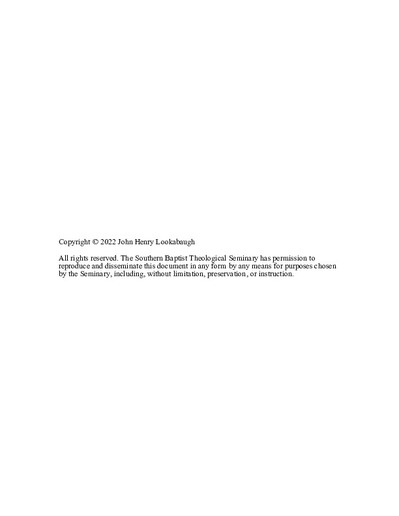| dc.description.abstract | This Delphi study was conducted in an effort to enhance church elders’ ability to manage conflict amongst themselves in ways that honor God and benefit the church. With a firm commitment to building upon the biblical foundation for Christian conflict management, this study sought to discover which, if any, are the concepts and practices from secular models of conflict management congruent with biblical principles of conflict management and beneficial to elders practicing shared leadership within a local church? Chapter 1 provides an overview of the biblical model for church leadership known as a plurality of elders and introduces some challenges associated with shared leadership, namely, conflict. Chapter 2 establishes a biblical foundation for understanding peace, conflict, and conflict management and surveys both Christian and secular models and practices of conflict management. Chapter 3 outlines the methodology for testing concepts and practices of conflict management from secular models for both congruence with Scripture and benefit to church elders. The study employed a three-round Delphi study with ten purposefully selected panelists who serve as elders in theologically orthodox churches which practice a shared leadership model. Chapter 4 describes the findings of the research and chapter 5 analyzes the results of the study and offers suggestions for application of the findings and recommendations for further research.
Of the items selected for consideration in the study, five concepts and four practices from secular models of conflict management achieved consensus approval as being congruent with biblical principles and beneficial to elders sharing leadership within a local church. Panelists reached a consensus approval of the congruence and benefit of a knowledge of the concepts of substantive conflict, process conflict, goal conflict, conflict of interests, and relational conflict. Panelists also reached a consensus approval of the congruence and benefit of use of the dual-concern matrix, along with the integrating, compromising, and obliging styles of conflict management. | en_US |

